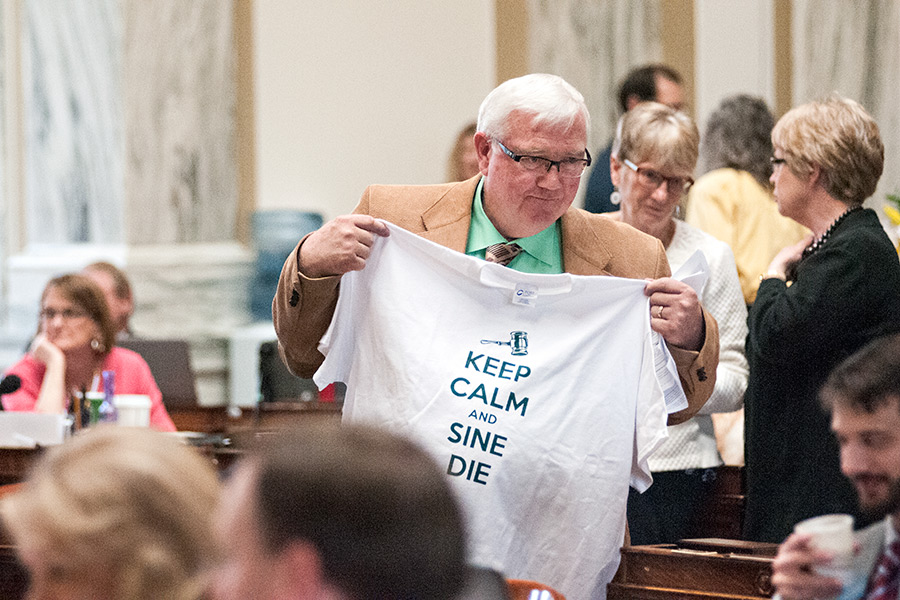HELENA — Montana lawmakers adjourned the 64th Legislative session Tuesday, three days early and without passing a $150 million infrastructure bill that had been a sticking point for days.
Representatives voted against bringing Senate Bill 416 back to the floor for another vote Tuesday and then voted to adjourn. The Senate adjourned shortly after the House.
On Monday, the House defeated SB416 for the fourth time and tried to go home, but the Senate rejected that idea hoping the House would consider the measure one more time. The bill needed 67 votes to pass because it included bonding.
“Sixty-seven was a huge number … and we didn’t know if we could get there,” said House Speaker Austin Knudsen of Culbertson. Knudsen took part in negotiations that led to the final proposal and said he felt honor-bound to support the bill. He also said timing may have played a role in its failure.
“When you’ve got as hard of feelings as you have from a conservative caucus that feel like they have lost everything, literally everything, this session … they were in a position to stop it and feel like they could walk out of here with a win,” he said.
Rep. Art Wittich, R-Bozeman, said as much Saturday during a caucus meeting where he encouraged Republicans to kill the bill.
“Frankly from a conservative standpoint it may be the only thing we did in this session,” Wittich said. “We have virtually lost everything that we came here to accomplish, including truly compromised legislation.”
Senate Bill 416 was crafted by a bipartisan group and introduced by Sen. John Brenden, R-Scobey, about a month ago after lawmakers rejected a nearly $400 million infrastructure proposal from the governor.
After the Senate overwhelmingly passed it, the bill was renegotiated and amended last week.
The measure would have provided $90 million, made up of $30 million each in cash, bonding and local borrowing authority for cities and counties. Another $60 million would be allocated if state revenue reached a certain level. About two-thirds of the money would go to water, sewer and roads projects while the remaining third would pay for building projects, including $7.6 million for state institutions and over $18 million for Montana State University’s Romney Hall.
Republican leadership said Tuesday that while Democrats and moderate Republicans joined forces to pass major legislation, more conservative Republicans touted the main budget bill as a big accomplishment.
“I don’t think it’s any big secret that Republicans may have been in the majority, but conservatives were not,” said Senate President Pro Tempore Eric Moore, R-Miles City. “We as Republicans are proud that we stuck together on a balanced budget.”
Democratic leaders on Tuesday gave the session an overall satisfactory grade and said they were disappointed by the inability to make any headway on funding for preschool programs as well as the failure of the main infrastructure bill.
“Collaboration was in the air throughout both chambers,” Senate Minority Leader Jon Sesso of Butte said. “We hit a bit of a speed bump there at the end.”
The Legislature did pass other bills that included about $93 million in infrastructure projects, some of which came from the governor’s original proposal.
Democratic Gov. Steve Bullock said Tuesday although he’s disappointed in the small group that he said didn’t want to get anything done on infrastructure, people shouldn’t lose sight of “all the good” that came out of the session. He noted Medicaid expansion, the Flathead water compact and a new law to disclose “dark money” in political campaigns among standout achievements.
Bullock said he expects the reality of little infrastructure funding to set in when lawmakers, especially those from eastern Montana where the need for infrastructure funding is great due to the Bakken oil boom, return home and hear from constituents.
“Folks need to both enjoy the sunshine and think about what more they could have done, then we go from there,” he said.
